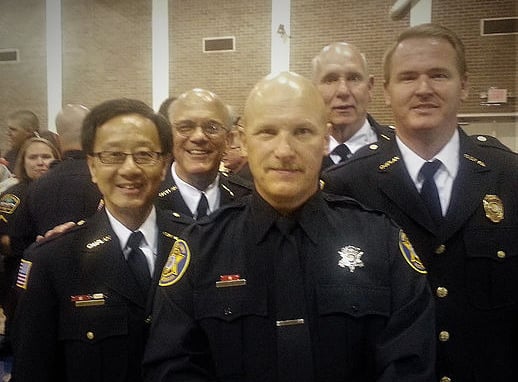A Chaplain that isn't seen...


A little while back I was asked by another chaplain how he could make connections with his firefighters. This was a public safety chaplain who works with fire, police, and EMS. He said he had no problems making connections with police officers or the EMTs, but it seemed that he could never break through that barrier that can come with some fire guys.
In his book Bulletproof Spirit: The First Responder’s Essential Resource for Protecting and Healing Mind and Heart, Captain Dan Willis writes, “First responders are by nature extremely distrustful. They will be checking you out from the time you arrive until the time you leave, and they will continue to do so until they know they can trust you.” It seems that a lot of first responders will keep people at arm’s distance until they know who you are.
I’ve had more than one want to know about my fire and police background long before they asked about my theological background. They want to know if you have been “in the trenches.” They want to know if you have been around some of the same trauma that they have. It seems for most, once they know that you have, then you are part of the team. This doesn’t mean that those who haven’t experienced the same things can’t be effective. It just may be a little harder to reach some of them.
Here are eight ways I have found that you, as a chaplain, can connect with your firefighters.
1. Be at meals.
Share a meal with a shift. Or better yet, offer to make a meal for the shift. Sometimes with a busy station, it is difficult to find the time to make a meal. Find out what they like and bless them.
2. Be aware and available.
Listen to the scanner. Know what the calls the crews are going on. Take time to keep them in prayer in real-time. Be available to them when they need you by pager. This may also mean giving out your cell number so they can call you.
3. Go to drill… and participate.
Take time to be with the crew on the drill field. Learn about what they are doing so you can be a better resource for them and the public they serve. Take an EMT class or even some basic firefighting courses. Take an interest in the probies and rookies. They are still trying to adapt to their new life in the fire service.
4. If possible, do a ride-along.
Spend some time with them actually on the calls. See what stresses they go through daily. If you can, ride with the Battalion Chief for the day. Get to know him/her and see what stresses they go through the day; it’s not always the same as the front-line firefighters. You may also be able to help out with a community event. Part of being in the fire service is being involved in fire prevention. This is an excellent way a chaplain can get to know the fire department and the public you serve.
5. Get to know your people.
Learn their first names and let them know you by first name, or at least as “Chaplain [first name].” Like all good relationships in the fire service, your ministry will be built on friendship and trust.
6. Socialize with them outside of work.
Be available to meet with them on their off days. Please get to know their families. Go to an event. Just the other day, I went to a minor league baseball game with one of my friends. Be creative and have fun.
7. Know where they go to church and if, at all possible, visit.
Yes, like many of you in ministry, I, too, have Sunday commitments. But it is good to at least know where they are coming from spiritually. Take an interest in their spiritual life. However, it may manifest itself.
8. Ask questions… then ask more… and listen.
Find out what they are interested in and learn about it, maybe from them. One of the greatest honors you can give a person is to let them tell you their story or at least what is on their heart. You may find that many of them have very colorful language and stories. If you are easily offended, the fire service might not be the place for you.
I hope this helps you as you minister to these wonderful people we call firefighters. The bottom line is this: a chaplain who isn’t seen is a chaplain who isn’t used. If you only show up for “chaplain” things and connect with people in “chaplain” ways, you may find your job gets smaller and smaller. Think of your role more broadly, and they will think of you when they need a chaplain, too.
